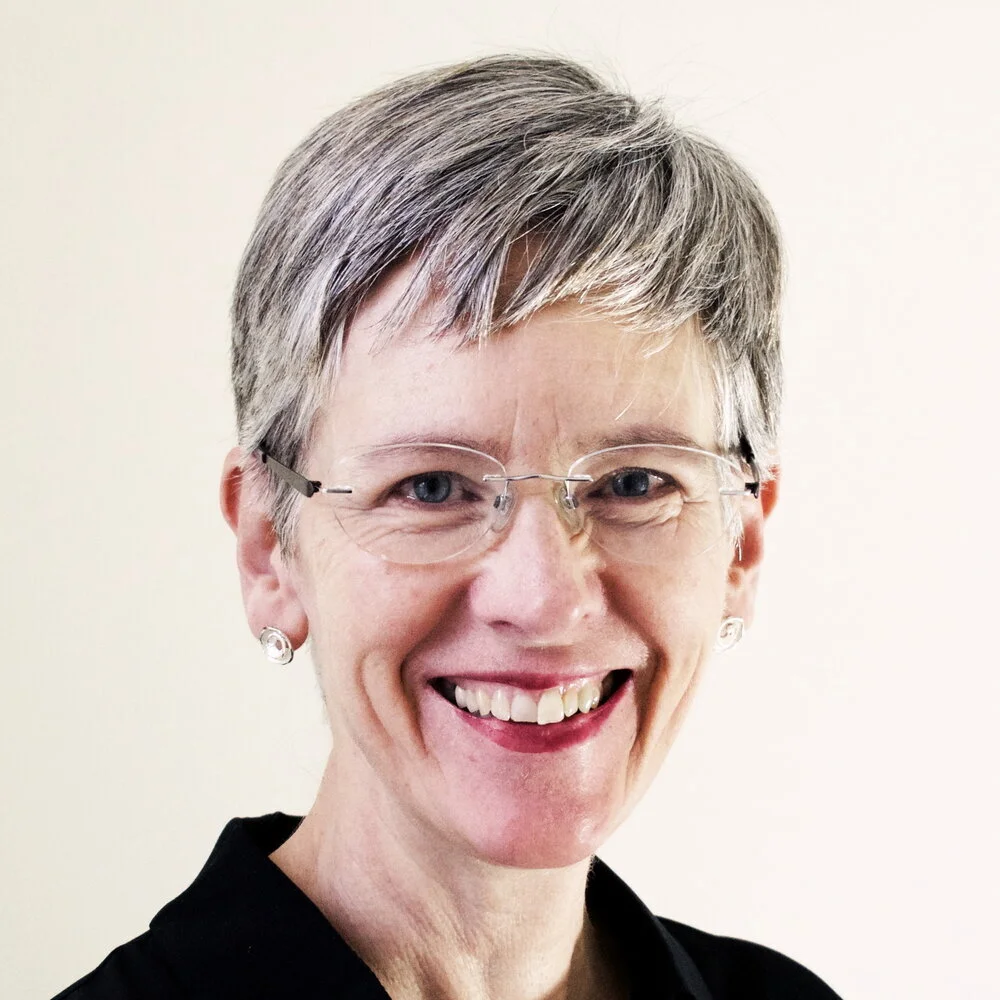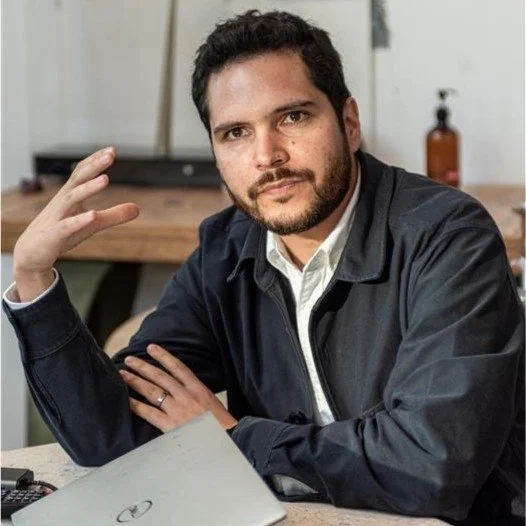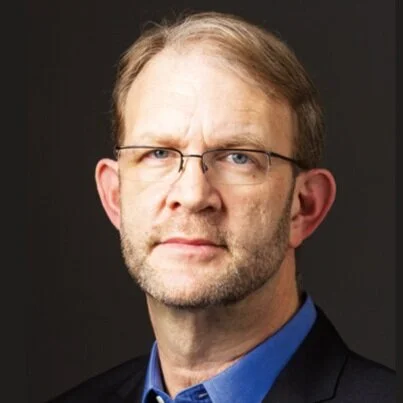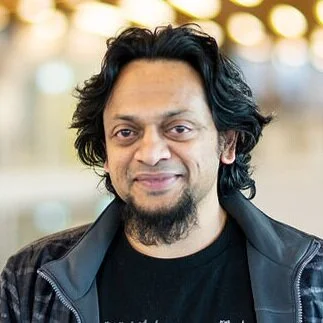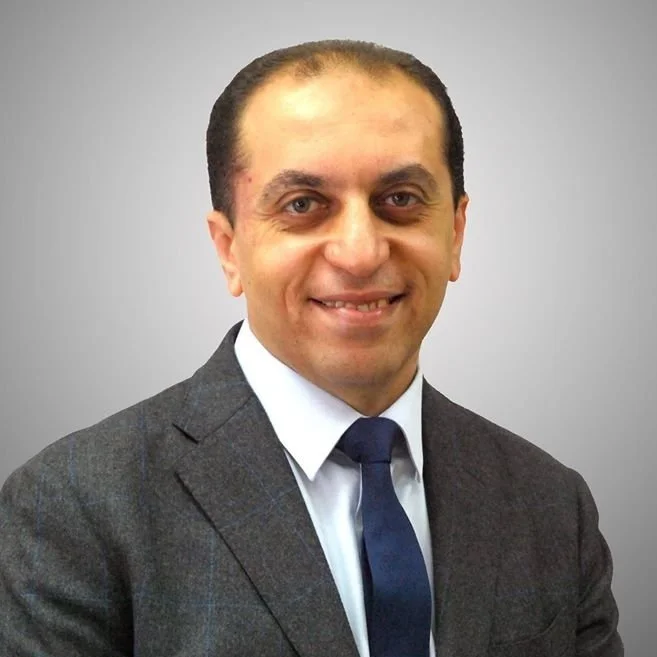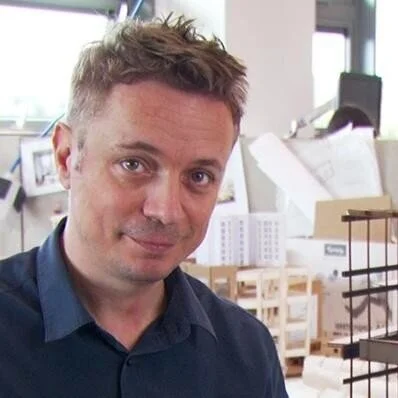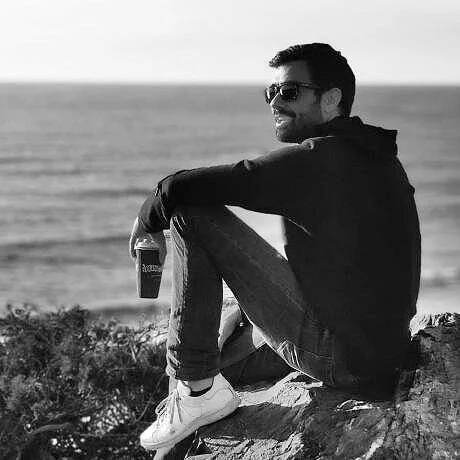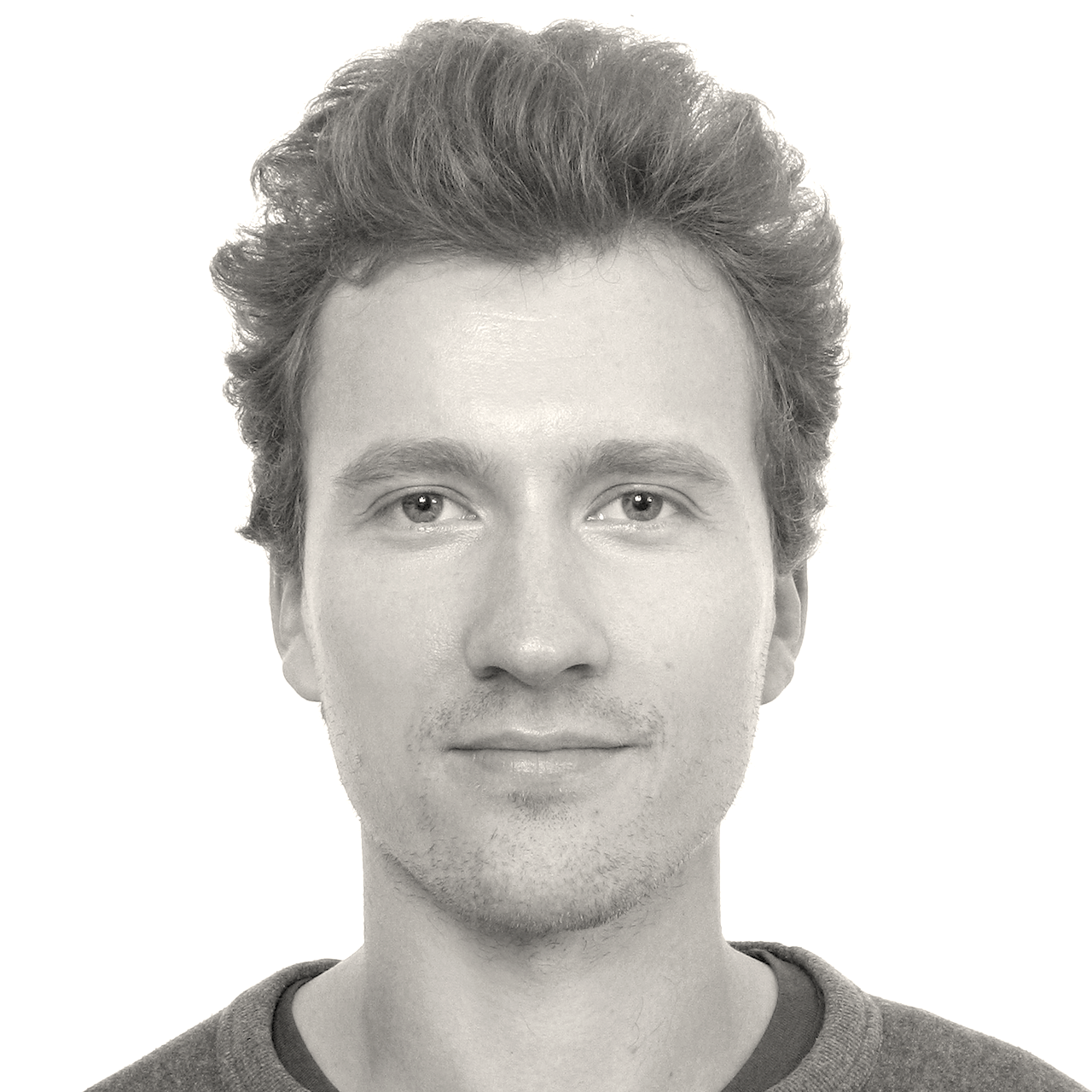Alain is an Associate Professor at the University of Hong Kong, Faculty of Architecture, Department of Urban Planning and Design (DUPAD). He is the Programme Director of the Master of Urban Design. He is a Council Member of the Hong Kong Institute of Urban Design (HKIUD). Alain has taught design studio at the AA, MIT, Columbia GSAPP, and the Berlage Institute.
His research interests are in “how to measure urban design” i.e. spatial configurations of urban qualities. He is the lead author of the 3D spatial design network analysis software (3D sDNA) used by urban designer and researcher worldwide. sDNA provided more than 400 built environment variables for the biobankUK leading to award-winning health research. sDNA is a 3D network science-based smart analytics software of urban morphology. 3D sDNA enables volumetric urban design configuration analytics providing unique cognitive morphometrics to understand urban form impacts on economic, social, health, and environmental performance of large conurbations in the USA, UK, France, and China. Before joining the University of Hong Kong, he was Senior Lecturer in Urban Design at the Cardiff University’s School of Geography and Planning.
Alain was previously Executive and Board Director at the global consultancy Space Syntax Ltd. He has directed large-scale spatial policy analysis, urban design policy formulation and evidence-based spatial and innovative urban design in major cities including Paris, London, Boston, Shanghai. He has provided consulting services to the Greater London Authority and the London Boroughs. He advised on urban design innovation leading international urban design practices and developers. He developed and led innovative services and operational research projects and managed more than 80 large-scale spatial transformation projects.
At University College London (UCL) he was Senior Research Fellow. His work has been widely published in international professional journals. In the UK he has been a member of various research project advisory panels at national level. Currently, he is on the advisory scientific committee of Efficacity a French R&D PPP centre dedicated to energy transition in urban territories that brings together the skills of over 100 researchers from industry and public research. He is a founding director of the international CHORA Urban Institute, and an advisor to national research funding institutions in Europe, North America and Asia.
Connect
Email | Website | LinkedIn | Research Gate | Google Scholar
S. M. Ali Eslami is a staff research scientist at Google DeepMind working on problems related to artificial intelligence. Prior to that, he was a post-doctoral researcher at Microsoft Research in Cambridge. He did his PhD at the School of Informatics at the University of Edinburgh, during which he was also a visiting researcher in the Visual Geometry Group at the University of Oxford. His research is focused on getting computers to learn generative models of images that not only produce good samples but also good explanations for their observations.
Connect
Dr. Globa is a researcher, academic and designer working in the field of architecture, with strong research interests in algorithmic design and parametric modelling (particularly using and teaching visual programming methods). The doctoral research work (VUW, 2015) and most of the teaching done in the span of 10 years in New Zealand, Russia and Australia focused on the use of computation, algorithmic form-making, and integration of parametric modelling in architectural design. Her design and research projects often involve the use of various digital fabrication technologies, including the adaptation and pre-fabrication preparation of digital models for 3D printing, CNC routing, or laser cutting. In the last three years (post-doc-research fellowship) Dr. Globa has further extended her skill-set and developed a large number of projects using interactive Virtual (VR) and Augmented (AR) environments. VR and AR were applied in the projects involving design exploration, data visualisation, and pre-occupancy simulation. She has extensive experience working with advanced computational analysis and simulations, data visualization, real-time interactive applications, and immersive analytics using both modelling computer environments and gaming engines (such as Grasshopper/ Rhino / Unity3D). Working as a key member of the Interdisciplinary Design environments for the Engineering and Architecture Laboratory (IDeEA lab) at Deakin University Dr. Globa has significant experience with the development and testing of digital and physical prototypes, interdisciplinary design, and industry collaborations.
Connect
Carlos is an Assistant Professor in Project Management and Business Analytics at the Bartlett School of Sustainable Construction, University College London. Carlos holds a PhD in 'Servitisation and Digitalisation in Project-Based Firms' and an MSc Degree in Economics & International Management. He is also a Fellow of the Higher Education Academy and an External Examiner at different institutions. His research interests revolve around business model innovation, operational changes, and new organizational forms in the digital economy. More broadly, Carlos is interested in the challenges and opportunities that data are creating for both organisations and clients. Likewise, his research tries to shed light on data-driven value creation and capture, and the implementation of advanced services in the construction sector. In addition to his academic work, Carlos has a background in Civil Engineering (MEng) and he has worked for a global construction company in different infrastructure projects.
Connect
Christopher Leung is a practicing research engineer, he holds an engineering doctorate from UCL (University College London) for original contributions to building technology from his work on passively activated thermal actuators for operating movable building facades. He holds an academic post as an Associate Professor at UCL. His research interests are in the challenges of expressing design intent for manufacturing, in particular, applied to novel technology for the built environment. He is a contributor to UCL's "Advanced meteorological sensing network", focussed on studying net radiation and the potential for passive radiant cooling in urban and sub-urban roofscapes. He is an active member on the UK national standards committee TPR (Technical Product Realisation) contributing to existing and new standards for technical documentation using the GPS (Geometrical Product Specification) language.
Connect
Prof. Chris Speed FRSE, is Chair of Design Informatics at the University of Edinburgh where he collaborates with a wide variety of partners to explore how design provides methods to adapt, and create products and services within a networked society. He is especially favours transgressive design interventions, to help identify and promote the values we care about most, including coffee machines that order their own ethical supplies, hairdryers that ask you to wait for the right time to blow dry your hair, and apps for sham marriages. Chris directs the Institute for Design Informatics that is home to a combination of researchers working across the fields of interaction design, temporal design, anthropology, software engineering and digital architecture, as well as the PhD, MA/MFA and MSc and Advanced MSc programmes. Chris has an established track record in directing large complex grants with industry partners, being involved in 25 research grants (leading on 10) since 2009 across ESPRC, ESRC and AHRC totalling in excess of £21m. He is currently leading the EPSRC funded OxChain Project (£1.3m), and is Co-I to the EPSRC PACTMAN Project (£1.3m) and part of the £5m PETRAS IoT UK Hub. Chris is Director of the recently funded £6mil (£5.5Mil AHRC & £0.5Mil SFC) Creative Informatics R&D Partnership, one of the nine AHRC funded Creative Industries Clusters.
Connect
Clara is an architectural designer and researcher specializing in digital tools and technology. After pursuing a focus on digital design and computation for her Master’s in Architecture/Architectural Engineering at the University of Innsbruck, she went on to obtain a Master of Research in Architecture & Digital Theory from the Bartlett School of Architecture, UCL researching Blockchain technology and its potentials for the AEC fields as well as for a wider social and economic context.
Her main interests and work continue to lie within the realms of computation in architecture and design, the use of technologies for a fairer global community, and theories of architecture as a driver for social change.
Clara now works as a Researcher for Automated Architecture (AUAR), holds a position as Teaching Fellow at the Bartlett School of Architecture, and contributes to a government-funded research project at the Institute for experimental architecture.hochbau at the Faculty of Architecture of the University of Innsbruck. She also runs Alphabet Architecture, offering translations, proof-reading and copy-editing of architectural writings.
Connect
Daniel Hall is Assistant Professor of Innovative and Industrial Construction at the Institute of Construction and Infrastructure Management, ETH Zurich, Switzerland. The overarching theme of his research is to enhance innovation and entrepreneurship in the construction industry through new technologies, processes, and organizational models to integrate the fragmented construction supply chain.
His research interests are industrialized construction and innovative project management. Ongoing research in industrialized construction includes circular economy models for industrialized housing, cloud-based configuration platforms, and new business models for systemic innovation in industrialized production. Ongoing research in innovative project management includes smart contracts using blockchain, managing digital fabrication, integrated project delivery, collaborative design management in VR/AR, and common data environments to enable virtual design and construction.
Prof. Hall holds a Doctor of Philosophy (2017) in Civil and Environmental Engineering (CEE) from Stanford University where he was recipient of the Charles H. Leavell Fellowship for Civil Engineering. He founded and organizes the annual Center for Integrated Facility Engineering Industrialized Construction Forum at Stanford University. In 2012, he was a visiting scholar at the Centre for Systems Engineering and Innovation at Imperial College London. Prof. Hall is currently an associated investigator at the Swiss National Center for Competence in Research “Digital Fabrication – Innovative Building Processes in Architecture.”
Prof. Hall holds a Master of Science (2014) in Civil and Environmental Engineering with an emphasis in Sustainable Design and Construction from Stanford University and a Bachelor of Science (2008) in Architectural Engineering from the College of Architecture and Environmental Design at California Polytechnic State University San Luis Obispo.
David has worked in academic VR research for over 20 years and is currently a Senior Research Fellow in the Virtual Environments and Computer Graphics group at University College London. He collaborates on a wide range of research and experimental work, with particular interest in how knowledge of human perceptual mechanisms can be exploited to overcome technical limitations of VR systems. This is manifested by studies spanning psychophysics, navigation control, interaction, haptics and social response within VEs, and he has published widely across these themes. David also runs UCL's Immersive VR Lab spaces, maintaining and overseeing a 4-wall CAVE-hybrid setup, mocap systems, haptics and telerobotic setups, and an ever-growing collection of VR and AR headsets.
Connect
Dustin White
Design Theory Committee
DC I/O 2022
Dustin White, is the Director, Digital Technologies and Fabrication at New York Institute of Technology School of Architecture and Design, where he teaches and coordinates the Visualization course sequence and directs the Fabrication Labs at each campus location. He is the principle of Dustin White Design an interdisciplinary design research office in New York City. His professional practice and research operate across multiple scales, from furniture to buildings and employ hybrid practices merging traditional, computational, and emerging technologies to explore opportunities for a reinvigorated understanding of architectures materials, structural, and spatial conditions. The work has been featured and shown around the world including the Marmomac Stone Expo in Verona, Italy, Venice Biennale Architecture, in Italy, The PASEO art festival in Taos, NM, Italian Consultant in Washington DC, and finalists for awards from NYC X Design in New York, South by Southwest Eco in Austin, TX, and Friends of the High Line in New York.
Connect
Email | Twitter | Website | LinkedIn | Instagram | GoogleScholar
Eduardo Lazzarotto is the SVP, Product & Strategy with ALLPLAN, part of the Nemetschek Group. He is responsible for managing the company’s product lines, which include market-leading applications for the AEC/O industry.
Eduardo has over 10 years of experience in product management and engineering applications, especially in solutions for the AEC/O industry. Before joining ALLPLAN, he was a Director, Product Management, for engineering applications at a leading software developer. He has also worked in a business development and operations leadership capacity, with senior roles in the rail industry in the UK and Latin America’s largest railway operator.
He holds an MSC in Development Management from the London School of Economics, UK, and a BA in Business Management and International Business from Unisinos University, Brazil.
Eduardo also speaks fluent English, Portuguese, Italian and Spanish. With a focus on business growth, Lazzarotto works with ALLPLAN’s global users to ensure that
its products are successfully delivered, supporting projects from the conceptual design stage through to operation and maintenance, enabling safer, cheaper, and sustainable infrastructure for all stakeholders.
About ALLPLAN
As a global provider of BIM solutions for the AEC industry, ALLPLAN covers the entire planning and construction process from initial design to execution planning for the construction site and precast design, in line with the motto Design to Build. Thanks to lean workflows, users create planning documents of the highest quality and detail. In the process, ALLPLAN supports interdisciplinary collaboration on projects in building construction and infrastructure engineering with integrated cloud technology. Over 600 employees worldwide continue the company’s success story with passion. ALLPLAN, headquartered in Munich, is part of the Nemetschek Group, the pioneer for digital transformation in the construction industry.
Connect
Dr. Eleni Papadonikolaki
Scientific Committee
Dr Eleni Papadonikolaki is an Assistant Professor (University Lecturer) in Building Information Modelling (BIM) and Management and a consultant in the area of digital innovation and management. Eleni holds a PhD on the ‘Alignment of Partnering with Construction IT’ from TU Delft, Netherlands, a MSc degree (cum laude) in Digital Technologies, also from TU Delft and an Engineering Diploma in Architectural Engineering (cum laude) from the NTUA, Greece. Bringing practical experience of working as an architect engineer and design manager on a number of complex and international projects in Europe and the Middle East, she is researching and helping teams manage the interfaces between digital technology and management. She is teaching at postgraduate and executive levels and is a steering committee member and researcher in the UCL Construction Blockchain Consortium (CBC).
Connect
Email | Twitter | Website | LinkedIn | Google Scholar
Greg Demchak
Industry Committee
Greg Demchak is a software designer, entrepreneur, and technology evangelist with a focus on human-computer interactions involving 3D/4D digital information models of the built world. He worked extensively on the design of Revit (BIM), Synchro (4D Planning), and iTwinXR (Digital Twin). In addition to product design, Greg has extensive experience bringing new products to market by engaging directly with end-users using design thinking and user-centred design principles.
He is currently living in London, exploring the emerging digital twin landscape in the context of developing open platforms (PaaS) for innovation. He has a design computation background rooted in the MIT School of Architecture, where he received his SMArchS degree.
Iro Armeni is a Postdoctoral Research Fellow at ETH Zurich, at the departments of Civil, Env. and Geomatics Engineering and of Computer Science. She is working with Prof. Daniel Hall, Innovative and Industrial Construction, and with Prof. Marc Pollefeys, Computer Vision and Geometry Lab. She is also part of the Design++ initiative at ETHZ.
Iro is interested in interdisciplinary research between Civil Engineering and Machine Perception. Her area of focus is on automated semantic and operational understanding of buildings throughout their life cycle using visual data.
Iro completed her Ph.D. at Stanford University on August 2020, Civil and Environmental Engineering (CEE) Department, Sustainable Design and Construction (SDC) Program, with a Ph.D. minor at the Computer Science Department. She conducted research under the supervision of Martin Fischer (CEE, Center for Integrated Facility Engineering - CIFE) and Silvio Savarese (Computer Science Department, Stanford Vision and Leanring Lab - SVL). Prior to her Ph.D., she received an MEng in Architecture and Digital Design (University of Tokyo-2011), an MSc in Computer Science (Ionian University-2013), and a Diploma in Architectural Engineering (National Technical University of Athens-2009). She has also worked as an architect and consultant for both the private and public sectors.
My research interests lie within the construction industry, and I am the Principal Investigator of the Transforming Construction Network Plus, funded by ESRC. I am mainly interested in the principles and practice of sustainability and ethics, and have a track record in responsible and ethical sourcing, which relates to material and product supply chains. Having founded the Action Programme for Responsible and Ethical Sourcing (APRES) in 2010, much of my research has focused on the implementation of responsible sourcing, so I am familiar with manufacturing, construction, and service firms and their operating practices. I have published over 150 papers, secured over £6m of funding (from research councils and industry) and supervised more than 20 doctoral students to completion. In so doing I have attended to research spanning strategy, procurement, standards, values, and accounting for sustainability. Many of my research projects have been supported by industrial partners, including global materials companies and consultancies. My leadership in research and enterprise is extensive, having previously been a Director of an EPSRC CDT (the Centre for Innovative and Collaborative Construction Engineering), and an Associate Dean for Enterprise.
Dr. Jakob Seidlitz is a postdoctoral research fellow at the University of Pennsylvania and Children's Hospital of Philadelphia, where his research falls at the intersection of neuroscience and genetics. He received his Ph.D. in clinical neuroscience (psychiatry) at the University of Cambridge, where he spent half his time at the US National Institutes of Health (NIH) funded by the NIH-Oxford/Cambridge scholars program.
His specialties are in medical image data processing and analytics, graph theory and statistical modeling, quantitative biological morphometrics, and bioinformatics. His research has appeared in top international academic journals, such as Science and Neuron, and he has co-authored more than 40 related scientific publications as an early-career researcher.
Connect
James Tompkin is an assistant professor of Computer Science at Brown University. His research at the intersection of computer vision, computer graphics, and human-computer interaction helps develop new visual computing tools and experiences. His doctoral work at UCL on large-scale video processing and exploration techniques led to creative exhibition work in the Museum of the Moving Image in New York City. Postdoctoral work at Max-Planck-Institute for Informatics and Harvard University helped create new methods to edit content within images and videos. Recent research has developed new machine learning methods for visual computing, by inferring and transferring object appearance between images, predicting 6DoF VR video, and learning to generate handwriting.
Jeremy Melvin is an architectural historian, a curator, a writer, a journalist, and a regular consultant to the profession and broader audiences on matters of architectural history, politics, and practice. He has held a number of key influential roles including; 1996-7, Director, the Architecture Foundation, 2000-2014, Development of architecture programme, Royal Academy of Arts, and 2007- present: Curator World Architecture Festival. He curated ‘Richard Rogers: Inside Out’ (2013) – the RA’s first large scale exhibition on contemporary architecture for more than 10 years. He is the author of six books on architecture, several key research papers the Journal of Architecture, and the Journal of the 20th Century Society, and 100’s of articles in leading professional journals, broadsheets, and magazines. In 2016 he edited ‘175 Years of Architectural Education at UCL’, a publication that traced the pioneering history of The Bartlett School of Architecture and contextualized it recent international acclaim within the progression of the profession and its links to UK academia. It was published as a special edition of The Architectural Review with 15,000 copies distributed worldwide. Jeremy has also recently founded ‘Thinkspace’ a new event series for UCL led by The Bartlett School of Architecture, and supported by The Backstage Trust.
My lab is interested in how sensory information is assembled by the brain into more complex, cognitive representations of the world. Our focus is on the “cognitive map,” which is formed by the hippocampus and associated structures and underlies our sense of direction and sense of place. This map is also used to organise memories of life experiences.
We study the cognitive map by recording single neurons from animals exploring space, and trying to decode the signals and understand what information they convey. We also study behaviour in order to find out what an animal “knows” about where it is and where it plans to go. The work will help us understand not just navigation but also cognition more generally, and may have implications for clinical disorders of navigation (topographical disorientation) and memory.
The lab is part of a bigger group of researchers known as the Institute of Behavioural Neuroscience (IBN), which sits within the Department of Experimental Psychology. I established the IBN in 2006 in order to develop the biological profile of the department and bring psychology and neuroscience closer together.
Connect
Kean Walmsley is a Software Architect working on projects that integrate IoT data with BIM (sometimes called Digital Twins) via the Forge platform, as well as working on Generative Design in the AEC space. He has worked in various roles – and in various countries – during his career at Autodesk, including building and managing teams of software developers in Europe, the Americas and Asia/Pacific. Kean engages regularly with Autodesk’s developer and computational design communities, providing technical content and insights into technology evolution.
Connect
Kimon Krenz is Research Associate at The Bartlett School of Architecture, University College London. He is part of the Space Syntax Laboratory as well as the Urban Dynamics Lab, a five-year EPSRC-funded research project, which addresses questions at the intersection of city and regional development with spatial analytics, data science and computing. Kimon’s research is specifically interested in how recent advances in data science can aid us in understanding the complexity of cities and regions, and how we can use this knowledge in the planning process. More broadly, Kimon is interested in spatial networks, urban systems and the modelling of human movement behaviour with a particular concern of space syntax, spatial data mining and machine learning. His previous EPSRC funded research focused on the spatial organisation of polycentric urban regions and the relationship between spatial network centralities and socio-economic factors within these regions. Kimon is a Fellow of the Higher Education Academy and has – besides numerous teaching activities – also experience in delivering international seminars and workshops. In addition to his academic work, Kimon has a background in architecture and urban design as well as experience working as an architect and a consultant for medium to large-scale urban development projects in Germany, which have been awarded several architecture prizes.
Connect
Pablo Zamorano
Head of Geometry and Computational Design
Heatherwick Studio
DC I/O 2023
Pablo is a Senior Overseas Architect with over 14 years of experience. Since joining Heatherwick Studio in 2015, Pablo has been instrumental on Projects and the Geometry and Computational Design group.
As Head of Geometry and Computational Design at the studio, Pablo works across all studio projects providing expertise and guidance on new technologies and techniques, and the execution of challenging geometries.
He was Deputy Project Leader on Coal Drops Yard, a new retail quarter and public space in King’s Cross, London. He oversaw all packages on the scheme and coordinated their delivery between the studio and the executive architect during Stage 3 and Planning. From Stage 4 onwards he focused on assisting the team to take the design through contract and later into construction. He was key on the development and fabrication coordination for all complex geometry-related areas on the project most notably on the Upper Level.
Prior to working at the studio Pablo was based at SOM London where he was key on a number of projects and competitions of multiple scales in Europe and the Middle East. One of his most notable projects was a high rise development of five towers with over 1,000 residential units in the Greenwich Peninsula in London currently under construction.
Before relocating to London in 2010, His career was split between New York and Santiago, Chile where he won international competitions and completed several projects.
His personal work has been exhibited, published, and awarded internationally. Pablo lectures regularly at different universities and conferences nationally and internationally.
Connect
Phil Bernstein is an architect, technologist and educator who is Associate Dean and Professor Adjunct at the Yale School of Architecture, where he received his B.A (honors) and M.Arch and has taught since 1988. He was formerly a Vice President at Autodesk where he was responsible for setting the company’s future vision and strategy for BIM technology as well as cultivating and sustaining the firm's relationships with strategic industry leaders and associations.
Prior to Autodesk Phil was a principal at Pelli Clarke Pelli Architects where he managed many of the firm’s most complex commissions. He is the author Architecture | Design | Data – Practice Competency in the Era of Computation (2018) and co-editor of Building (In) The Future: Recasting Labor in Architecture (2010 with Peggy Deamer), and speaks and writes extensively on technology, practice and project delivery. He is a Senior Fellow of the Design Futures Council and former Chair of the AIA National Contract Documents Committee. His upcoming book on artificial intelligence and design practice will be published by RIBA in 2021.
Relevant Publications
Building (in) the Future: Recasting Labor in Architecture
Architecture | Design | Data: Practice Competency in the Era of Computation
Connect
Richard is a Lecturer in Bioaugmented Design at the Bartlett School of Architecture, where he is Director of RC7 on the MArch AD course. He is currently PI on an 18 month AHRC research project investigating Probiotic Architeture and is also a cross disciplinary PhD candidate (Bartlett/Engineering).
Richard initially studied physiology and biochemistry before going to work in R&D for Glaxosmithkline as a physical properties scientist. He then went on to study architecture, obtaining his undergraduate degrees from the University of Westminster and a Masters degree in Architectural Design from UCL at the Bartlett School of Architecture.
His investigations in to architecture have remained cross-disciplinary focusing on the contemporary discussion on digital architecture and fabrication alongside the impact of biotechnology on Architecture and more specifically, investigations into the use of living or semi-living materials in our built environment. This background acquires him with a cutting edge expertise in the field of computational data production, 3D printing and digital manufacturing as a material and technical innovator.
He has lectured and given workshops internationally and has been an invited critic at various UK universities. His work is internationally exhibited and published. Outside of the school, he is co-editor and organiser of Syn.de.Bio, a new online forum to disseminate bio-digital work that is emerging in the crossroad of design, biology and engineering.
Connect
Shajay Bhooshan is a Senior Associate at Zaha Hadid Architects where he co-founded and heads the research activities of the Computation and Design (CoDe) group. He also works as a studio master at the AA DRL Master’s program in London. He pursues his research in structure and fabrication aware architectural geometry as a PhD Candidate at the Block Research Group, ETH Zurich. Previously, he has worked at Populous, London and completed his M.Phil from the University of Bath and M. Arch from the AA School of Architecture, London
His current interests & responsibilities include developing design-research and maintaining computational platforms for the same at Zaha Hadid Architects. He has taught and presented work at various professional conferences, events and institutions across the world including Architectural Association London, ETH Zurich, Poly-technic of Milan, Tongji University Shanghai, SIGGRAPH, Autodesk University etc.
Connect
Ar. Shneel Malik
Peer-Review committee
Architect and Bio designer, Shneel Malik is currently a Teaching Fellow & a PhD Candidate at the Bio-Integrated Design (Bio-ID) Lab based at the Bartlett School of Architecture, University College London. She investigates the design and fabrication of large-scale photosynthetic membranes for applications within Architecture. With the aim of gathering an advanced understanding of the composition, structure and processing of complex biological tissues and systems she further explores large-scale fabrication techniques of 3D Printing and Robotic fabrication with the aim of developing passive biological architectural scaffolds with a range of energy-based applications such as bioremediation and biophotovoltaics. She is also the innovator of Indus - a modular wall system designed to clean wastewater using bioremediation in small scale artisanal industries. Her research work has been exhibited at various International Design forums such as the Centre Pompidou in Paris (2019), London Design Festival (2018-19) and at the BioTallinn Biennale in Estonia (2017).
Connect
Prof. Stephen Gage
Advisory Board
Stephen Gage is Professor of Innovative Technology and the Course Coordinator in the Post Graduate Certificate in Advanced Architectural Research within the The Bartlett School of Architecture at UCL. Professor Gage adopts a research outlook that is mindful of how different forces, technological and architectural for instance, can co-determine one another:
"I am interested in the way that the technology of building relates to the external environment....During my long experience as a designer I have sustained an interest in the way that the technology of building can subtly modify the internal environment." Stephen Gage
Stephen Gage has utilised speculative - design approaches in his work previously such as when he and Will Thorne proposed the 'Edge Robots', a design strategy that encourages a ‘bottom-up’ approach to environmental control. The project asked whether it is possible to populate the edges of buildings with location-specific robots that both operate environmental modifiers and encourage building users to be sparing in their energy consumption. As wemakemoneynotart notes: The small robots would patrol building facades, regulating energy usage and indoor conditions. The machines would also "gesture meaningfully to internal occupants" when building users are clearly wasting energy. We need all the persuasion we can get to modify our behavior before the planet is severely compromised. Gage's teaching practice is also informed by cybernetics, most clearly in his 'The Wonder of Trivial Machines'. This paper argues that physical architecture can be observed as a trivial machine (as understood from the writings of Heinz von Foerster) nested inside another machine whose function is unknown. Thiss produces the attributes of non-trivial machines; ie delight and surprise. Harking back to cybernetic theory also inform's Gage's 'Constructing the User' which explores alternative, more enriching means of constructing the user of the built environment and that also poses the question: "how do we relate transient uses and experiences to environments that of necessity have to last for a very long time?"
One can witness these influences within: Agent based Interactives (EPSRC funded) (2005-2006). The project worked with primary school children to create an interactive floor installation consisting of an ecology of autonomous agents (including passing people).
Dr. Stephen Law
Scientific Committee
Dr Stephen Law is a Research Fellow at the Alan Turing Institute and Senior Research Fellow at the University College London Bartlett School of Architecture. His current research interests lie at the confluence of machine learning, urban analytics and real estate analysis. He completed a PhD in UCL studying the economic value of spatial networks in the housing market a master degree in Urban Design and a Bachelor degree in Economics. He has over 10 years of international consultancy experience (eg. Space Syntax Limited and Aecom) with emphasis on pedestrian movement modelling and simulation, geo-spatial analytics, network science and urban design.
Stephens research focuses on: “What is the intangible value of urban design?” Recent advances in citizen science and geo-data computation, present the possibility of analysing the collective perception of urban design with large volumes of crowd-source data and machine learning techniques. His research tackles this research challenging by discovering novel salient built environment factors using both network science methods from space syntax and methods in computer vision. He then uses machine learning methods to infer the implicit value from the design of the built environment. The vision and the ambition of the research is to build an open source toolkit known as the “Urban-Value Toolkit” where future urban design projects can be evaluated against and also be used to generatively improve existing design.
Dr. Tamir El-Khouly
Scientific Committee
DC I/O 2022
Tamir El-Khouly is an assistant professor in architecture, digital communication and building information modelling at the School of Sciences and Engineering at AUC. He holds a PhD in the built environment with a special focus on design studies from the Bartlett School of Architecture, Faculty of Built Environment, the University College London (UCL). He received his MSc and BSc in architecture engineering from Faculty of Engineering, Ain Shams University, building experience in teaching various disciplines at both undergraduate and postgraduate levels.
He participated in primary research with highly ranked institutes in the UK between 2007 and 2017; Space Syntax Laboratory, Bartlett School of Architecture and Bartlett School of Environment, Energy and Resources (BSEER), University College London, and Dyson School of Design Engineering, Imperial College London. His area of research focuses on design studies (descriptive and prescriptive models), architecture computing (space syntax theory, digitally mediated environments, machine-learning), design thinking (creativity and cognition), BIM process in architectural practice, generative and parametric design, and graph theory (syntactic methods, linkography and network analysis).
He has had publications in reputable journals, international conferences and symposia, chaired workshops and was invited as a key speaker in prestigious international venues.
He received an honorary nomination as a finalist for the Entrepreneurial Award, organized by Britain Embassy in Egypt and British Council, hosted by His Excellency HMA John Casson, Britain ambassador in Egypt in March 2017, and was shortlisted for the RIBA President's Award for Research 2016 for the best doctoral dissertation category, organised by the Royal Institute of British Architects RIBA.
Tamir has variant enterprises in architectural design having contributed in various multi-disciplinary projects with British architectural firms in several rewarding projects – i.e. Magistrates’ high courts, Westminster, London is one important example. He specializes in design concept development and detailing, BIM and technicalities. He is a national award-winning architect with a broad spectrum of knowledge in various architectural domains and awareness of the British and Egyptian building regulations.
He started his career as a project architect. Today, he leads TEK DESIGN LTD's international team for cross-border consultation, diligently creating and managing portfolios for multiple architectural sectors, and specializing in design conception, development and detailing, sustainability studies, environmental studies, and BIM adjustment and production.
He is a trainee in Neuro-Linguistic Programming NLP and Continuous Professional Development.
Connect
Email | Twitter | Website | LinkedIn | GitHub | RGate | GoogleScholar
Dr. Theo Dounas
Scientific Committee
Dr Theo Dounas is a chartered architect and a senior lecturer at the Scott Sutherland School at Robert Gordon University where he directs the MSc in Advanced Architectural Design and orchestrates the school’s efforts in digitization.
His research encompasses blockchain, generative and parametric systems with a tight orchestration between design and fabrication. He is directing www.archchain.cc, a project that seeks to establish a decentralised Building Information Modelling toolset and mechanisms for the AEC industry.
Additionally, he conducts research in design for fabrication and assembly, through a series of projects in robotic fabrication and assembly of components for buildings.
Connect
Tyson Hosmer
Industry Committee
Tyson Hosmer is an architect, researcher, and software developer working at the intersection of design, computation, AI, and robotics. His interests focus on embedding agency and artificial intelligence in nonlinear systems applied to architecture. He is a Lecturer at UCL Bartlett BPro in London where he directs the Living Architecture Lab (RC3), focusing its research on autonomously reconfigurable architecture, and winning the Autodesk Emerging Research Award at Acadia 2019 for his co-authored paper, Towards an Autonomous Architecture. He is an Associate Researcher with Zaha Hadid Architects leading grant-funded research development of cognitive agent-based technologies and machine learning for generative design. His thirteen years of experience in practice includes working with Asymptote Architecture, Kokkugia, AXI:OME, and serving as Research Director with Cecil Balmond Studio for 6 years. Tyson was previously a Course Tutor for seven years with the AADRL and has been a visiting professor in several institutions internationally.
Connect
Website | LinkedIn | Research Gate | Google Scholar | Instagram
Victoria is an Architect and Associate Professor. As director of an architectural practice and also previous employee of practices, she has experience within a range of sectors and has worked within the fields of facilities management, BIM, occupancy planning, architectural visualisation and interior design. Victoria has always been passionate about architectural education. During her time as an academic, she has developed connections with organisations in USA and South Africa, which provide the opportunity teach internationally and also collaborate on numerous projects and research activities. In 2011, Victoria co-founded the aae (association of architectural educators), which was formally announced in 2013 with the inaugural conference, which she organised. The conference launched the aae journal, Charette, for which she is on the editorial committee. Victoria has continued to support aae conferences as Director of events and through research presentations on the use of social media in the design studio, which in turn lead to a PhD placement at Loughborough University. In 2012, Victoria set up the aae and Vectorworks scholarship programme, which provides free software to UK architecture schools. This project was showcased at the Vectorworks summit, Chicago. In 2014, Victoria joined BCU as Course Director, Year 1 year lead and Associate Professor. She has taught across many fields within HE, including: architecture, interior architecture, theatre and set design, architectural technology, BIM, CAD and digital architecture and a number of other specialist areas. Victoria’s most recent project is “BIM in Birmingham”. Now appealing to world wide audiences, the BIM in Birmingham suite of conferences is developing quickly and has become internationally recognised.
Connect
Wiktor Kidziak
Peer-Reviewer
Wiktor Kidziak is an Architect at ARUP working in the Science and Industry Sector. Experienced in innovative computational methodologies his focus is to deliver architectural and BIM solutions for complex multi-disciplinary engineering projects. He specialises in “generative design” and is actively involved in Arup’s digital transformation.
He studied at Architectural Association and University College London (UCL) where he graduated in 2015 with MArch.



















